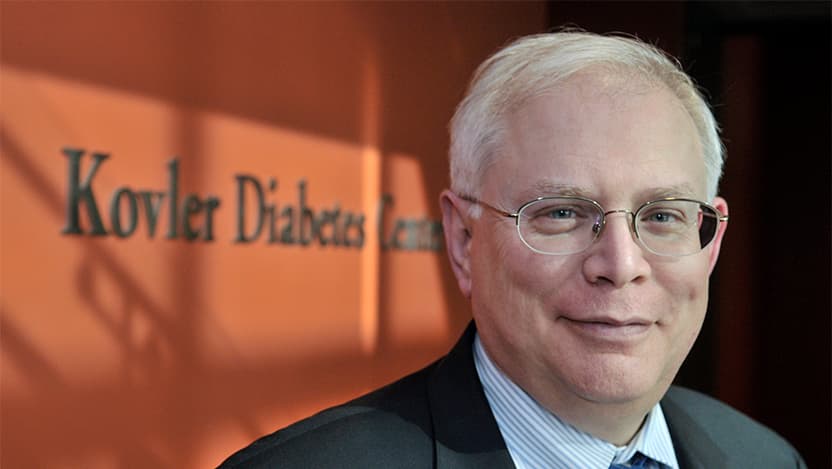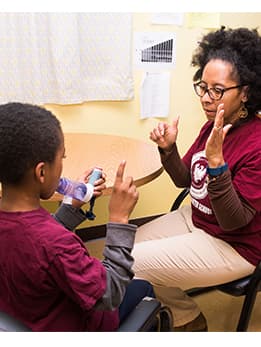Diabetes Disparities: A Letter from Center Director Louis Philipson, MD, PhD

Louis Philipson, MD, PhD
Dear Friends,
Racial and ethnic health disparities are a crisis in diabetes. We at the Kovler Diabetes Center see the inequities every day, as do our University of Chicago Medicine colleagues: people of color in their 20s and 30s with blindness, with amputations, needing dialysis — because they didn’t get the diabetes care they need. Why didn’t they?
Black, Hispanic and Indigenous communities bear a disproportionate burden of diabetes — and the burden of inequities in basic necessities of life such as access to healthcare, healthy food, and outdoor exercise. We are increasingly understanding how structural racism leads to stress, which leads to increases in hormones that oppose the action of insulin. In addition, cancer and diabetes may be affected by living in communities that are exposed to environmental toxins.
I highly recommend the book “Diabetes: A History of Race and Disease,” by Arleen Tuchman. We have been distributing it to our friends, and arranged for Tuchman to speak to our board.
This problem is here and now. People with diabetes need equitable access to the care, medicines and technology available.
Underlining this urgency, Tracey Brown, CEO of the American Diabetes Association (ADA), with whom I worked closely when I was ADA president for science and medicine, has focused the organization on healthcare justice and equity. The ADA last year kicked off Health Equity Now, a major initiative to end diabetes disparities.
We are working hard to address inequities in our own area, the largely Black communities on the South Side of Chicago. In partnership with the Chicago Center for Diabetes Translational Research — national leaders in addressing diabetes disparities — and in our own research and programming, we are taking steps to make sure that every patient gets the best diabetes care, education, and support, regardless of ZIP code.
You can read about these initiatives in this edition of the Kovler Connection, which we are devoting entirely to racial disparities in diabetes. We are grateful to our supporters, who make this work possible. Together, we can make health equity a reality.
Racial and ethnic health disparities are a crisis in diabetes. We at the Kovler Diabetes Center see the inequities every day, as do our University of Chicago Medicine colleagues: people of color in their 20s and 30s with blindness, with amputations, needing dialysis — because they didn’t get the diabetes care they need. Why didn’t they?
Black, Hispanic and Indigenous communities bear a disproportionate burden of diabetes — and the burden of inequities in basic necessities of life such as access to healthcare, healthy food, and outdoor exercise. We are increasingly understanding how structural racism leads to stress, which leads to increases in hormones that oppose the action of insulin. In addition, cancer and diabetes may be affected by living in communities that are exposed to environmental toxins.
I highly recommend the book “Diabetes: A History of Race and Disease,” by Arleen Tuchman. We have been distributing it to our friends, and arranged for Tuchman to speak to our board.
This problem is here and now. People with diabetes need equitable access to the care, medicines and technology available.
Underlining this urgency, Tracey Brown, CEO of the American Diabetes Association (ADA), with whom I worked closely when I was ADA president for science and medicine, has focused the organization on healthcare justice and equity. The ADA last year kicked off Health Equity Now, a major initiative to end diabetes disparities.
We are working hard to address inequities in our own area, the largely Black communities on the South Side of Chicago. In partnership with the Chicago Center for Diabetes Translational Research — national leaders in addressing diabetes disparities — and in our own research and programming, we are taking steps to make sure that every patient gets the best diabetes care, education, and support, regardless of ZIP code.
You can read about these initiatives in this edition of the Kovler Connection, which we are devoting entirely to racial disparities in diabetes. We are grateful to our supporters, who make this work possible. Together, we can make health equity a reality.
.jpg%3Fsc_lang%3Den&w=3840&q=75)
Louis Philipson, MD
Louis Philipson, MD, PhD, is an endocrinologist and a leading world authority on diabetes mellitus. His clinical interests include type 1 diabetes, complicated type 2 diabetes, monogenic diabetes and hypoglycemia.

Our Commitment to Community Benefit & Engagement
In collaboration with our dedicated community partners, UChicago Medicine offers programs and services to empower South Side and Southland residents with broadening access to health and wellness resources.
Community EngagementKovler Diabetes Center
UChicago Medicine offers a patient-centered, science-based approach for managing insulin-dependent Type 1 diabetes, complex Type 2 diabetes, gestational, pre-diabetes and monogenic diabetes.
Learn more about our expertise